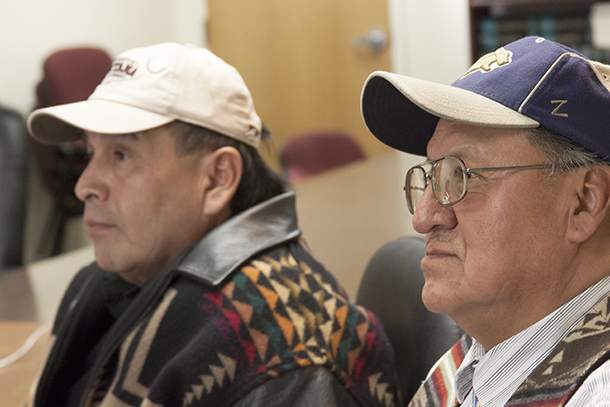Federal prosecutors have charged a former Blackfeet Tribal Business Council chairman of fraudulently approving more than $200,000 in overtime claims by employees of the tribe’s Head Start program.
Willie Andrew Sharp was charged on Jan. 10 with theft, wire fraud and forfeiture. He is scheduled to appear in U.S. District Court in Great Falls on Feb. 5.
According to court documents, between April 2013 and July 2014 Sharp approved more than 7,800 hours of overtime for a number of Head Start employees, including his wife Denise L. Sharp, even though he knew they had not earned overtime. In total, Sharp allegedly helped defraud the government sponsored Head Start program of more than $232,000.
A number of the employees involved in the scam have been charged. Ethyl Lee Grant and Carol Hall Bird both pleaded guilty to wire fraud and were ordered to pay restitution. Denise L. Sharp and Theresa and Patrick Calf Boss Ribs have all pleaded guilty to wire fraud and theft and will be sentenced later this year.
According to charging documents, Willie Andrew Sharp personally received $38,711 as part of the alleged fraud.
Willie Andrew Sharp was chairman from 2012 to 2014 during one of the most tumultuous times in recent Blackfeet history when the tribal government split into two factions.
Infighting broke out on the BTBC within weeks of Sharp taking the chairman’s seat. Between June and September 2012, five tribal council members and dozens of tribal employees were suspended, expelled or fired under questionable circumstances. In 2013, the tribal council split into two different factions, each trying to claim control over the government. The split led to numerous government shutdowns. Sharp was voted out of office in 2014.
The dysfunction on the tribal council between 2012 and 2014 highlighted some of the weaknesses in the tribe’s constitution. Afterwards, tribal members tried to rewrite the constitution, and in 2017 the new document was put to a vote before tribal members. The constitutional reform effort ultimately failed over concerns by some that it would allow open enrollment.
